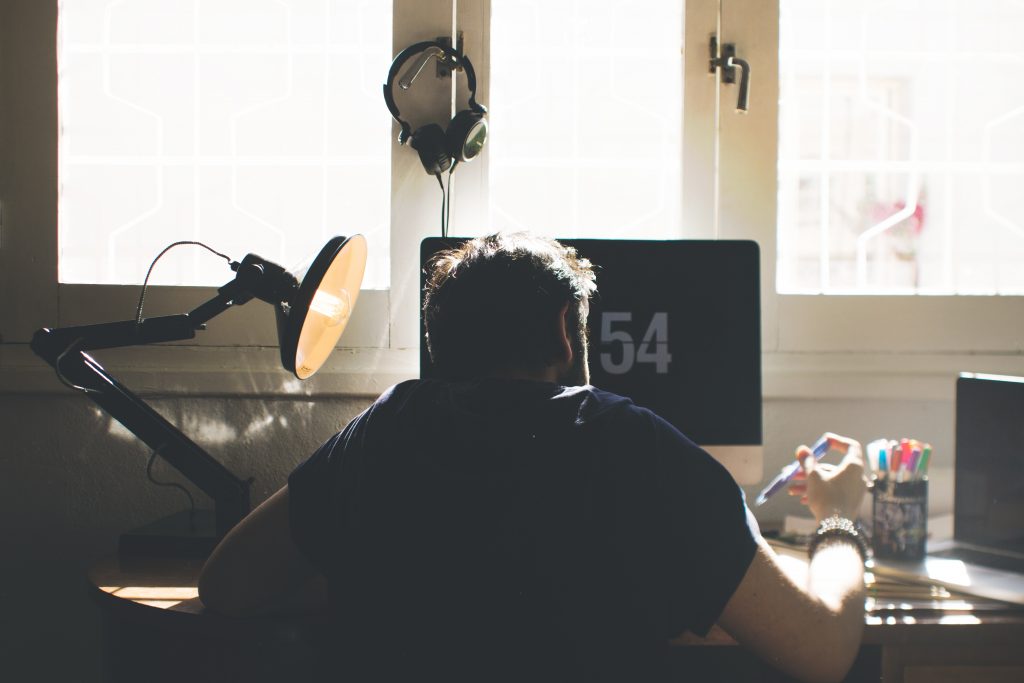
12 Oct 5 ways a digital detox benefits your mental health
A digital detox can work wonders. Shutting off from technology for a given period of time can improve sleep and concentration, reduce stress, improve happiness, and even help with your mental health. At Time To Log Off, we’ve seen some amazing results at our digital detox retreats and the research behind the positive impacts of digital detox are piling up.
Today we’re telling you about five ways a digital detox can specifically help your mental health.
#1 Going offline can help depression

UK psychologists have found a strong link between heavy internet use and depression. The research found that 1.2% of the surveyed 1,319 were internet addicts and many of were found to be suffering from depression.
During a digital detox, you’ll be able to restrict – if not totally ban – your internet use and you’ll see the benefits. Sophie Corlett, of the mental health charity Mind, said: “Evidence suggests that active pursuits such as exercise and socialising with people face-to-face are among the factors that help us stay in good mental health.”
Swapping time spent online for the exercise and socialising face-to-face can really help with those suffering from depression.
#2 As smartphone usage drops, so does anxiety
We’re a nation addicted to our smartphones. Something most of us will think is a normal part of life, but, your smartphone could actually have a negative impact on those who suffer from anxiety. A study looking into the relationship between smartphone use, academic performance and anxiety revealed that as mobile phone usage increased, so did anxiety.
By simply putting your smartphone away for a few hours a day could help with anxiety.
#3 Logging off social media can help with depression

Studies show that those who spend a lot of time on social media are more likely to suffer from depression. One study showed the correlation between heavy Facebook use and depressive symptoms, including low self-esteem. Facebook users tend to only post the good and exciting parts of their lives, giving off the illusion of a ‘perfect life’, leading others to feel depressed when comparing their own life with their Facebook friends’ fake, seemingly perfect lives.
One in five social media users have admitted to feeling depressed after seeing how perfect friends lives are via social media, this equates to almost seven million people. Deleting social media apps from your phone will dramatically reduce your time spent scrolling, and help to make you feel better!
#4 Social media usage is linked to eating disorders
The overuse of social media is linked to eating disorders. One study found that women who spend long periods of time on social networks such as Facebook, have been found to have a higher number of incidence of ‘appearance-focused behaviour’ (such as anorexia) and were more anxious and body conscious overall.
This is another great example of why it is important to cut your time on social media, looking at others ‘perfect’ lives can have a negative impact on your own.
#5 Technology can cause insomnia
Harvard Medical School scientists looked into the relationship between technology and sleep, and the results show that using technology in bed could be the cause of your insomnia.
The artificial blue light produced by our screens can suppress the hormone melatonin, leaving us more alert and awake, as well as struggling to sleep and feeling tired the next day. If you’re using screen-based technology every night before bed and suffer from insomnia it might be time to try a digital detox.
If you want to give a digital detox ago we’ve got plenty of tips to help you at home. Or check out our digital detox retreats!






Sorry, the comment form is closed at this time.